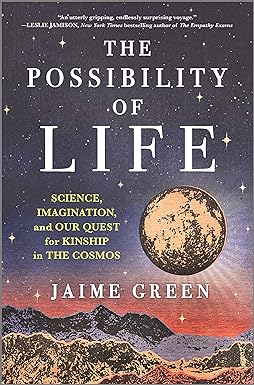
Back in ancient times, the speaker at my college graduation (1973) was the school's president (and kind of a real-life Sheldon Cooper), Harold Brown. No offense, but he was a less-than-stellar speaker.
If only I had flunked a few courses, I could have graduated a year later, and the speaker at that ceremony was Richard Feynman. The topic of his speech was "Cargo Cult Science". And it is the source of one of his more famous quotes about science:
The first principle is that you must not fool yourself—and you are the easiest person to fool.
(Twelve years later, he wrote "Personal Observations on Reliability of Shuttle" as an appendix to the Rogers Commission Report on the Challenger disaster. His overall theme was that NASA had, indeed, fooled itself.)
Feynman's observations kept coming to mind as I read this book, which is about the search for extraterrestrial life. The subtitle refers to "our quest for kinship", which implies (to me) that we're not talking about a dispassionate search for truth. A lot of people really want it to be true; that's a perilous attitude for non-cultish science.
To her great credit, the author, Jaime Green, alludes to this attitude. Example: the hype around the Allan Hills 84001 meteorite. Initially thought to contain evidence of Martian life, then-President Clinton gave a short TV speech, rhapsodizing: "Today, rock 84001 speaks to us across all those billions of years and millions of miles. It speaks of the possibility of life."
Eventually, we all sobered up. 84001 is pretty neat, but not proof of life.
Green's book is wide-ranging. She not only looks at the science involved, but spends a lot of pages on how science fiction deals with the topic. There's Star Trek, of course, Carl Sagan's Contact (book and movie versions), but a lot of more serious, literary SF: Lem, Leguin, L'Engle, … and that's just the L's.
Fiction raises a lot of questions and issues, but so does actual science. Even restricting ourselves to our planet, We don't have a real solid answer for which arrangements of atoms and molecules constitute "life" and which do not. Would we even recognize off-planet life if we saw it?
Green discusses SETI research, and the hurdles involved there. Again, is it likely we'd recognize signals emitted by some alien intelligence? Can we look for Dyson Spheres?
But all in all, the book was significantly more touchy-feely than I would have liked, more about us than them. The Fermi Paradox, for some reason, does not rate an index entry.
![[The Blogger and His Dog]](/ps/images/me_with_barney.jpg)



